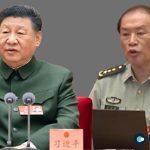
India Announces Readiness for Bilateral Normalization Talks with Pakistan

In a potentially pivotal diplomatic move, India has declared its readiness to embark on a journey toward normalized relations with Pakistan. The Indian government’s announcement emphasizes that a harmonious bilateral friendship can be realized if an environment devoid of terrorism and violence is established.
The impetus for this development was ignited during the inaugural session of the Mineral Summit held in Islamabad, where Pakistan’s Prime Minister, Shehbaz Sharif, vocalized his willingness to engage in discussions with India to foster mutual growth and nation-building. Responding in kind, India underscored the pivotal requirement of creating a violence-free atmosphere as a precursor to any meaningful dialogue.
Arindam Bagchi, the spokesperson for India’s Ministry of External Affairs (MEA), emphasized the country’s aspiration for friendly and cooperative relations with Pakistan. Bagchi stated, “We seek to establish amicable relations with Pakistan, but this aspiration hinges on the creation of an environment devoid of terrorism and violence. A peaceful coexistence demands such conditions.”
Overcoming decades of strained relations since their respective independence in 1947, Pakistan’s Prime Minister, Shehbaz Sharif, posited that discussions with India could pave the way for tackling shared challenges, including Pakistan’s economic hardships. Sharif alluded to the necessity of overcoming poverty, unemployment, and resource limitations, asserting that engaging with India constructively could be a step toward addressing these concerns.
“We stand prepared to engage in meaningful dialogue with our neighbors. The precondition for sitting at the negotiation table is the genuine intention to address substantial matters,” expressed Prime Minister Sharif. He further highlighted that Pakistan’s possession of nuclear capabilities was oriented toward self-defense rather than offensive purposes, signifying a commitment to resolving differences through dialogue, rather than conflict.
Prime Minister Sharif also articulated that fostering economic competition rather than a nuclear arms race could yield more constructive outcomes for both nations. He reiterated that resolving issues of shared interest and contention through peaceful dialogue was integral to forging a normal and neighborly relationship.
This overture follows a historic pattern of strained ties between the two nations since the establishment of Pakistan. India has consistently accused Pakistan of supporting cross-border terrorism, a contention that has marred their relationship.
On August 4, 2019, in response to India’s decision to alter the status of Jammu and Kashmir and reorganize the region into two union territories, Pakistan, under Prime Minister Imran Khan’s leadership, expelled India’s ambassador and halted bilateral trade.
As international observers watch with keen interest, the announcement of India’s willingness to initiate normalization talks with Pakistan offers a glimmer of hope for potential reconciliation between the two neighboring countries. The global community awaits further developments to ascertain whether these initiatives will lead to substantial changes in the dynamics of India-Pakistan relations.












Comments